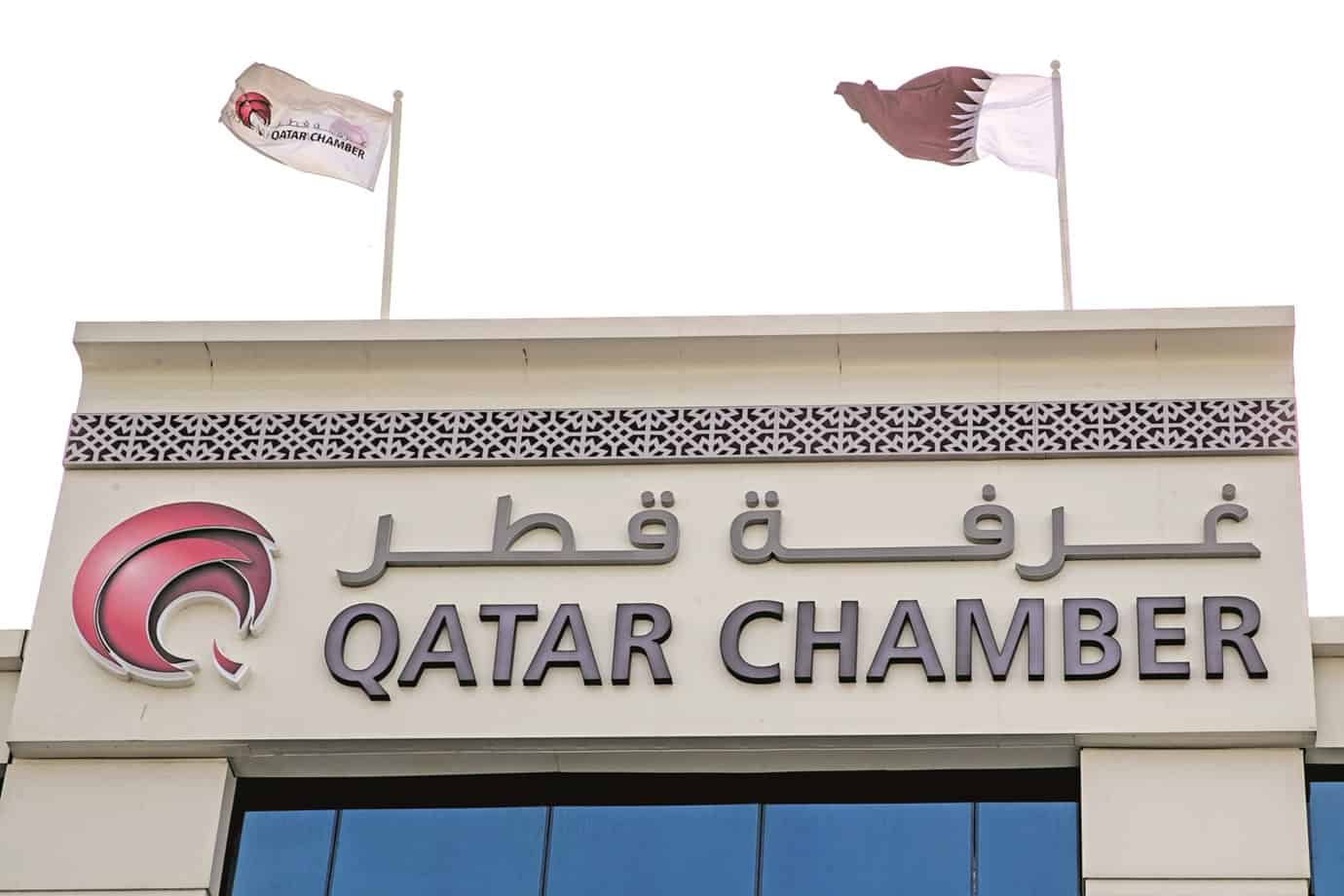Qatar Chamber Calls for Doubling Efforts of Developing Countries to Facilitate Movement of E-Commerce
غرفة قطر تدعو إلى مضاعفة جهود البلدان النامية لتسهيل حركة التجارة الإلكترونية
QNA
Amman: HE Board Member for International Relations at Qatar International Center for Conciliation and Arbitration (QICCA) Sheikh Dr. Thani bin Ali Al Thani affirmed that developing countries must double efforts to facilitate the development of e-commerce, stressing its role in saving time and money and creating more jobs because it is more efficient than other types of commerce.
This came in QICCA’s participation in the International Innovation Dome Forum for Development and Sustainable Development which was held in Amman, Jordan. Held under the theme Digital Economy, Future Economy – Safe Transition to E-Commerce, Reality and Challenges.
The participants in the two-day forum discussed a number of important themes, foremost of which is the safe digital structure and its role in enabling institutions to transform into e-commerce, mechanisms to support and expand the economic contribution of institutions in digital commerce, monitoring and examining challenges of e-commerce transformation and best practices, and presenting national and Arab trade experiences in e-commerce.
HE Sheikh Dr. Thani bin Ali Al Thani noted that E-commerce allows more efficiency and raises productivity, and the spread of e-commerce among the business sector reduces the costs of commercial transactions and improves the management of supply operations, which can contribute to a reduction in prices. In addition, E-commerce allows logistics providers to expand their services instead of their traditional roles through the e-commerce value chain
Elaborating of e-commerce in Qatar, HE noted that the State of Qatar was not far from the development towards the e-commerce, adding that it issued many legislations that keep pace with the technical development of this type of commerce such as the Transactions and E-Commerce Law, the Anti-Cybercrime Law and the law establishing the National Cyber Security Agency. It also issued the E-Commerce document, the first of its kind in the State of Qatar, that drew the broad lines of the current situation of e-commerce in the State, he noted, and its development by focusing on four main axes: governance, technology, electronic payment, and delivery services.
“Qatar has a suitable environment for the adoption of E-Commerce and has a developed infrastructure for the internet. It ranks first among the highest countries in the world in terms of the deployment of fixed fiber networks and occupies a leading position in the implementation of mobile networks and the fifth generation. It also ranks second globally out of 175 countries in the internet speed test via mobile networks, and its citizens and residents enjoy high levels of income,” he added.
According to a study conducted by Qatar Chamber, he said, the value of e-commerce in Qatar exceeded $2.2 billion in 2020 compared to $ 1.5 billion in 2019, showing an increase of 47 percent, while it is expected to hit $2.3 billion in the current year.
قنا
عمّان: أكد سعادة الشيخ الدكتور ثاني بن علي آل ثاني عضو مجلس الإدارة للعلاقات الدولية بمركز قطر الدولي للتوفيق والتحكيم بغرفة قطر على ضرورة أن تضاعف البلدان النامية للجهود لتسهيل حركة التجارة الإلكترونية التي توفر الوقت والمال وتخلق فرص عمل واعدة لأنها أكثر كفاءة من أي من وسائل التجارة الأخرى.
جاء ذلك خلال مشاركة مركز قطر الدولي للتوفيق والتحكيم بغرفة قطر، في ملتقى قبة الابتكار الدولي للتطوير والتنمية المستدامة الذي عقد في العاصمة الأردنية عمّان تحت عنوان /الاقتصاد الرقمي اقتصاد المستقبل – التحول الآمن الى التجارة الإلكترونية الواقع والتحديات/.
وناقش المشاركون في الملتقى الذي عقد على مدى يومين، عدداً من المحاور المهمة وبمقدمتها البنية الرقمية الآمنة ودورها في تمكين المؤسسات للتحول للتجارة الإلكترونية، وآليات دعم وتوسيع المساهمة الاقتصادية للمؤسسات الفاعلة في التجارة الرقمية، ورصد وتشخيص تحديات التحول للتجارة الإلكترونية وأفضل الممارسات وعرض تجارب التجارة الوطنية والعربية بالتجارة الإلكترونية.
ولفت سعادة الشيخ الدكتور ثاني بن علي آل ثاني خلال مشاركته إلى أن التجارة الإلكترونية تسمح بمزيد من الكفاءة ورفع الإنتاجية.. مبينا أن انتشار التجارة الإلكترونية بين قطاع الأعمال يخفض من تكاليف المعاملات التجارية و يحسن من إدارة عمليات التوريد والذي يمكن بدوره أن يسهم في الحد من ارتفاع الأسعار.
وتابع : ” إضافة إلى ذلك فإن التجارة الإلكترونية تتيح لمزودي العمليات اللوجستية التوسع في خدماتهم بدلا عن أدوارهم التقليدية وذلك عبر سلسلة القيمة الخاصة للتجارة الإلكترونية”.
واستعرض سعادته واقع التجارة الإلكترونية في دولة قطر، وقال إن قطر لم تكن بعيدة عن التطور نحو التجارة الإلكترونية، فقد أصدرت التشريعات اللازمة لهذا النوع من التجارة منذ بضع سنوات، مثل قانون المعاملات والتجارة الإلكترونية، وقانون مكافحة الجرائم الإلكترونية، وقانون إنشاء الوكالة الوطنية للأمن السيبراني، كما رسمت وثيقة التجارة الإلكترونية والتي تعتبر الأولى من نوعها في دولة قطر، مع وضع الخطوط العريضة لواقع التجارة الإلكترونية في دولة قطر، وتطويرها من خلال التركيز على أربعة محاور رئيسية هي: الحوكمة، التكنولوجيا، الدفع الإلكتروني، وخدمات التوصيل.
وأشار إلى أن دولة قطر تتمتع ببيئة ملائمة لتبني التجارة الإلكترونية، وتتوفر فيها بنية تحتية متطورة للإنترنت فهي تحتل المرتبة الأولى بين أعلى الدول في العالم من حيث نشر شبكات الألياف الثابتة وتحتل مكانة رائدة في تنفيذ شبكات المحمول والجيل الخامس، كما تحتل المرتبة الثانية عالميا من أصل 175 دولة في اختبار سرعة الإنترنت عبر شبكات الهاتف الجوال، ويحظى مواطنوها وسكانها بمستويات عالية من الدخل.
وأضاف أن كل هذه العوامل ساعدت في زيادة انتشار التجارة الإلكترونية في قطر، لافتا الى أنه وفقا لدراسة حديثة أعدتها غرفة قطر، فقد تصاعد نمو التجارة الإلكترونية في دولة قطر في السنوات الأخيرة، حيث بلغت نحو 2.2 مليار دولار أمريكي في العام 2020 مقابل 1.5 مليار دولار في العام 2019 بنمو نسبته 47 بالمائة، ومن المتوقع أن يصل حجم التجارة الإلكترونية في قطر خلال العام 2021 الجاري الى نحو 2.3 مليار دولار.




